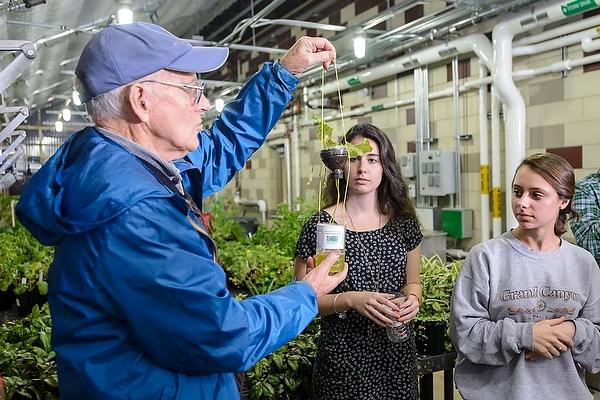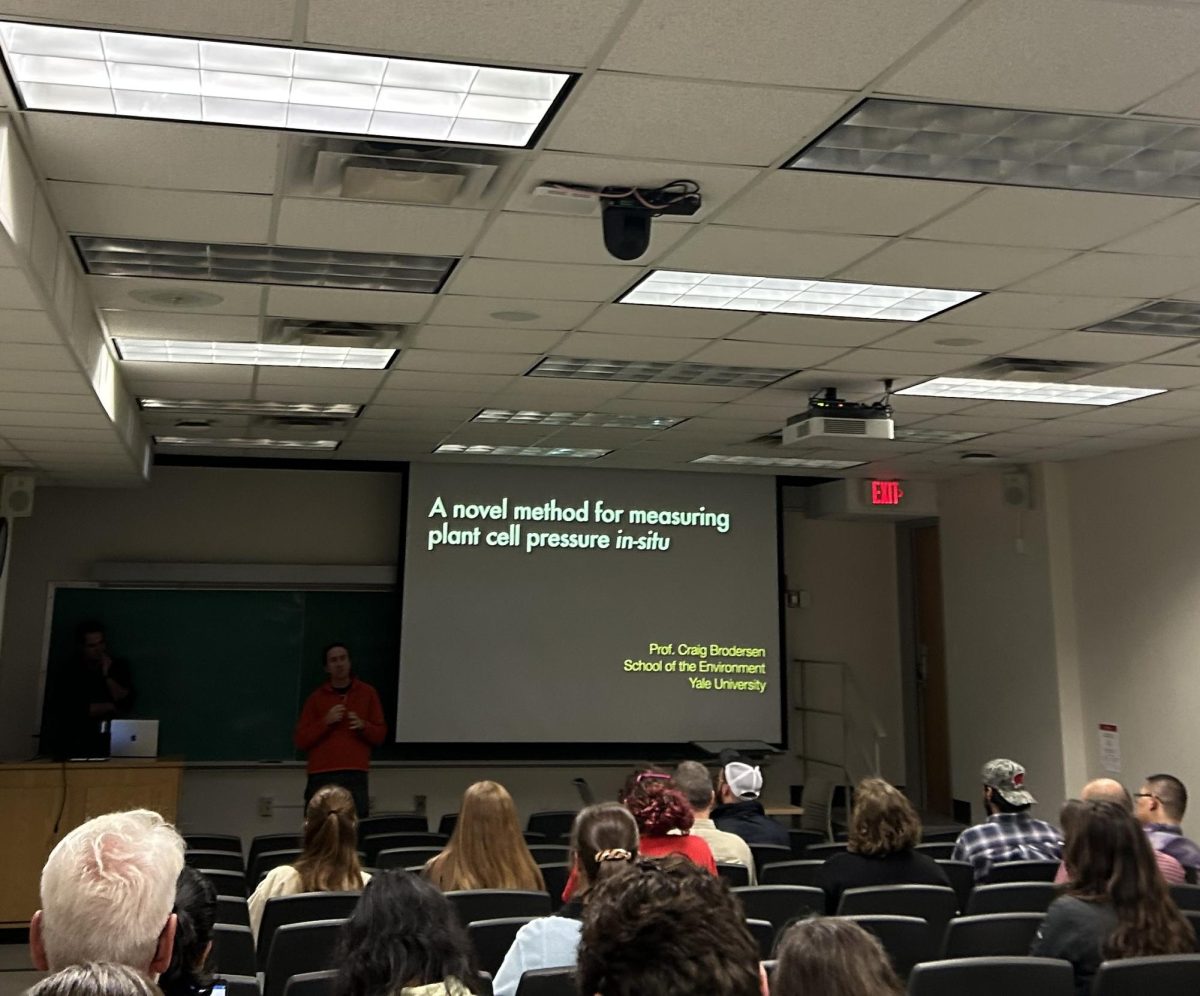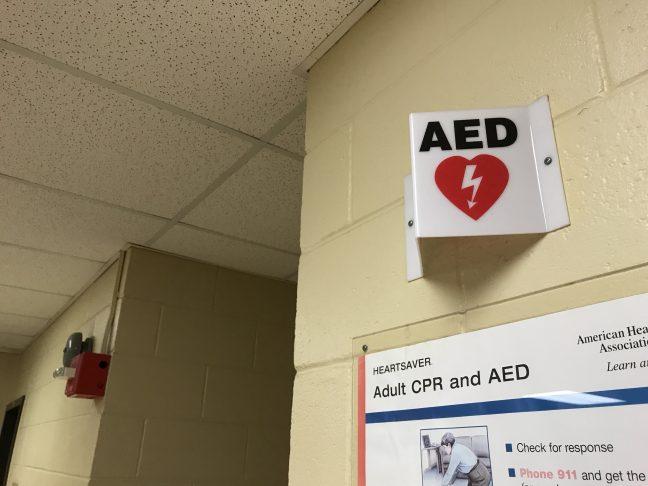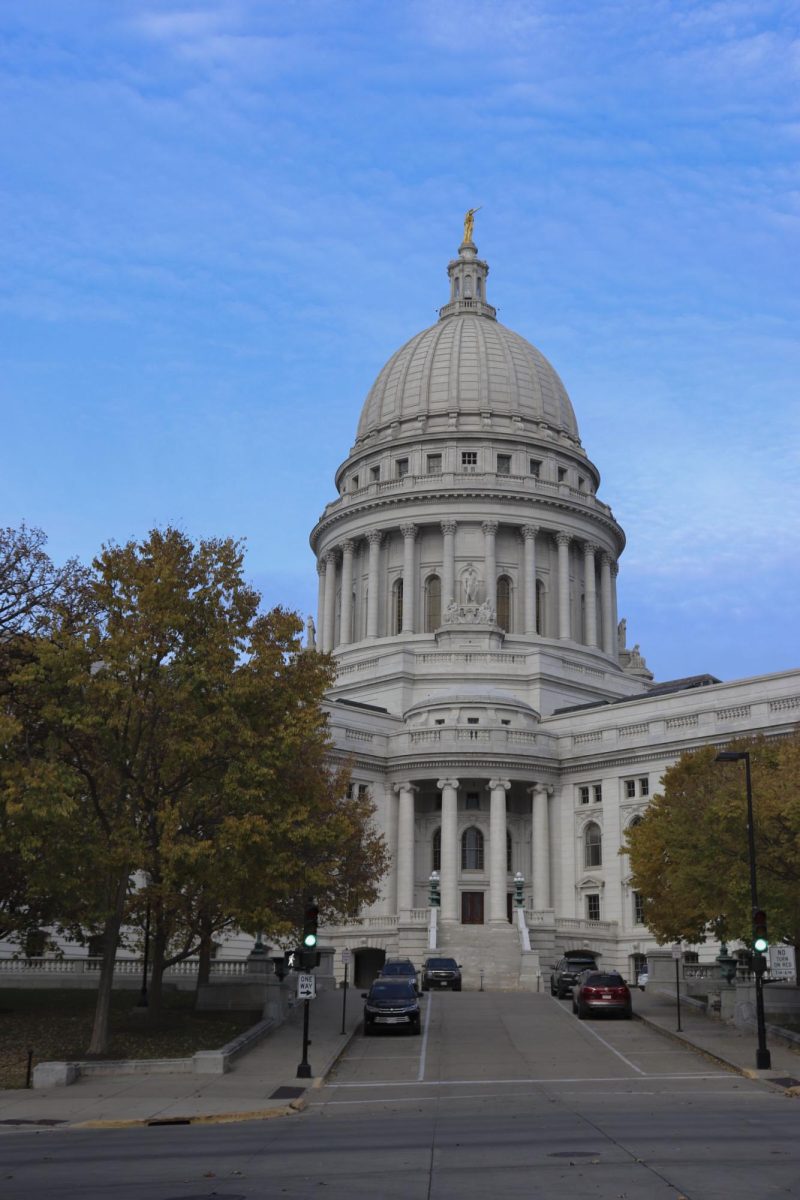The University of Wisconsin won the 2021 Green Ribbon Schools Postsecondary Sustainability Award. Between 2007 and 2018, UW reduced their greenhouse gas emissions by 38% — with a reduction in building energy by 19%, a reduction of portable water by 20%, a 13% reduction in total waste per campus user and diversion from the landfill of 43% of waste.
Project and Communication Specialist at UW Office of Sustainability Jake McCullough said UW prides itself on taking a holistic approach to sustainability. While the main focus of sustainability is the environmental side, UW has taken the opportunity to redefine the ideas around sustainability in higher education.
“It’s balancing economic interests, social interests and environmental interests,” McCullough said.
Michelle Nijhuis discusses conservation, its history for UW’s Science Writer in Residence program
This benefited UW’s application to Green Ribbon Schools. Green Ribbon Schools is a program managed by the U.S. Department of Education, and it recognizes K-12 and post secondary institutions for sustainability. Specifically, there are three pillars that they ask their applicants to address — to reduce environmental impacts and costs, improve health and wellness of students, faculty and staff as well as to provide effective environmental and sustainability education.
UW addressed all three pillars in their holistic approach, according to a UW press release. For pillar one, UW has reduced greenhouse gas emission by about 38% since 2007 though UW’s campus space on campus as well as student and staff population have grown. In addition to reducing greenhouse gas emissions, UW also invests in local energy projects such as the O’Brian Solar Fields in Fitchburg, McCullough said.
For pillar two — improving health and wellness — UW addressed physical health and nutritional resources and mental health — which encompasses ideas like diversity and equity inclusion, McCullough said. This is an area where students believe UW needs to improve.
Environmental justice approaches paramount in combatting climate change, panel says
Hersh Pareek, an undergraduate student double majoring in Global Health and Health Promotion & Health Equity said UW can do a better job promoting nutrition, diversity and equity. UW could do a better job incentivizing vegetarian diets and providing vegetarian food options on campus, Pareek said. An example is Babcock ice cream — UW’s very own brand — where nearly all flavors are made from beef gelatin. Livestock production is one of the biggest emitters of greenhouse gas, and excluding gelatin from Babcock ice cream can work to the reduce greenhouse emissions, Pareek said.
Pareek also said UW can improve upon diversity, equity and inclusion.
“UW is really performative in that aspect because they just post something on social media or say we care about our students, but I haven’t genuinely seen action,” Pareek said.
Pareek mentioned UW is on stolen Indigenous land, yet it does not properly address the Native American community. While Pareek said UW is taking steps in the right direction, they are nowhere near enough.
McCullough said there are aspects of sustainability UW can improve upon regarding the second pillar.
“I think we could still improve on something that we’ve been trying to address in the past couple of years, but always room for improvement, is trying to engage our students’ voices,” McCullough said.
There is a critical mass of a larger student body UW wants to hear from. The Office of Sustainability wants to know what their priorities are when it comes to campus sustainability as it’s easy sometimes to forget, McCullough said.
But there are ways UW encourages students to raise their voices and get involved on campus. Becoming a part of a student group or organization like the many sustainable living learning communities as a freshman, or even applying to the year-long internship program at the Office of Sustainability, McCullough said.
McCullough also suggested getting involved in the vast amount of research UW funds when it comes to climate change — an aspect UW highlighted in their Green Ribbons application for pillar three. UW gained more than $459 million in sustainability-related grant funding, and is the university that conducts the most climate change research in the Midwest.
UW’s application goes into more detail on the specifics of what UW has to offer when it comes to going green. While students criticize some of the efforts at UW, there is no denying UW has made significant strides to make them deserving of the award, Pareek said.
“I think an almost 40% reduction in emissions is really good,” Pareek said. “That’s a really big deal, especially for our university. I think they’re definitely trying, and that is respectable.”
The Office of Sustainability is encouraging students to get involved and continue to fight against topics like climate change.














